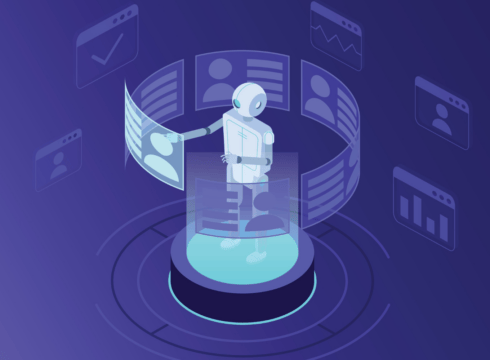Sifting through resumes and conducting multiple rounds of interviews are typical steps in traditional recruiting strategies that take a lot of time and are often time-consuming
Recruiters can automate a lot of these tasks with ChatGPT-4, allowing them to concentrate on more important aspects of the hiring process, like engaging candidates and building relationships
it is time for HR professionals to begin investigating and utilising brand-new technological tools to remain ahead of the curve and meet the challenges posed by a workforce that is constantly changing
Inc42 Daily Brief
Stay Ahead With Daily News & Analysis on India’s Tech & Startup Economy
Artificial intelligence (AI) and natural language processing (NLP) are clearly transforming a number of industries at an unprecedented rate as technology advances. This trend is also prevalent in the field of human resources (HR), where chatbots, virtual assistants, and other conversational agents have gained popularity. But now that ChatGPT-4 has been released, there is even more opportunity for new technological advancements in the field of human resources.
The most recent iteration of OpenAI’s GPT series of language models, ChatGPT-4, is intended to produce responses that are human-like to natural language prompts. It outperforms its predecessors in a number of significant ways, including improved speed, improved scalability, and improved performance across a wider range of tasks. It is the ideal tool for HR professionals who want to streamline their operations and enhance employee experiences because of these advancements.
Streamline Reduncies In The Hiring Process
Recruitment is one of the most important areas where ChatGPT-4 can make a difference. Sifting through resumes and conducting multiple rounds of interviews, for example, are typical steps in traditional recruiting strategies that take a lot of time and are often time-consuming. Recruiters, on the other hand, can automate a lot of these tasks with ChatGPT-4, allowing them to concentrate on more important aspects of the hiring process like engaging candidates and building relationships.
For example, ChatGPT-4 can be used to create personalised job descriptions and application processes, tailored to the needs and preferences of individual candidates. It can also conduct initial candidate screenings, using natural language processing to analyse resumes and identify the most qualified applicants. This can save recruiters significant amounts of time and help them identify top candidates more efficiently.
Once candidates have been selected, ChatGPT-4 can also be used to conduct initial interviews and assessments. It can ask candidates a series of questions, using natural language processing to evaluate their responses and determine their fit for the role. This can help recruiters identify potential red flags early on in the process and make more informed decisions about which candidates to move forward with.
More Personalised Onboarding Messages
Onboarding is another area where ChatGPT-4 can make a difference. As it establishes the tone for the employee’s whole relationship with the organisation, onboarding is a crucial phase in the employee lifecycle. Traditional onboarding procedures, on the other hand, can be time-consuming and burdensome, which lowers employee engagement and retention rates.
With ChatGPT-4, HR specialists can design more unique and interesting onboarding processes for new hires. For instance, ChatGPT-4 can be used to develop interactive onboarding manuals that use natural language processing to respond to frequent queries and give new hires pertinent information. Additionally, it can be used to conduct online onboarding sessions, enabling new hires to communicate with their coworkers and managers from any location.
Improves Employee Engagement
ChatGPT-4 can also be used to improve employee engagement and retention rates. By using natural language processing to analyse employee feedback, HR professionals can identify areas where employees are struggling or dissatisfied and take proactive steps to address these issues.
ChatGPT-4 can also be used to conduct pulse surveys and other employee feedback mechanisms, allowing HR professionals to gather real-time data on employee satisfaction levels and make data-driven decisions about how to improve the employee experience.
Conclusion
ChatGPT-4 addresses a critical forward-moving step in the reconciliation of man-made intelligence and NLP advancements in the HR space. This technology has many potential uses, including enhancing employee engagement and training initiatives, as well as recruiting and onboarding procedures.
By computerising and smoothing out numerous customary HR errands, ChatGPT-4 opens up HR experts to zero in on more vital and esteem-adding exercises, which can at last work on the general progress of an association. It is likely that we will see even more innovative HR applications as this technology continues to advance, resulting in increased efficiencies and enhancements to the employee experience. Therefore, it is time for HR professionals to begin investigating and utilising these brand-new technological tools in order to remain ahead of the curve and meet the challenges posed by a workforce that is constantly changing.
{{#name}}{{name}}{{/name}}{{^name}}-{{/name}}
{{#description}}{{description}}...{{/description}}{{^description}}-{{/description}}
Note: We at Inc42 take our ethics very seriously. More information about it can be found here.


